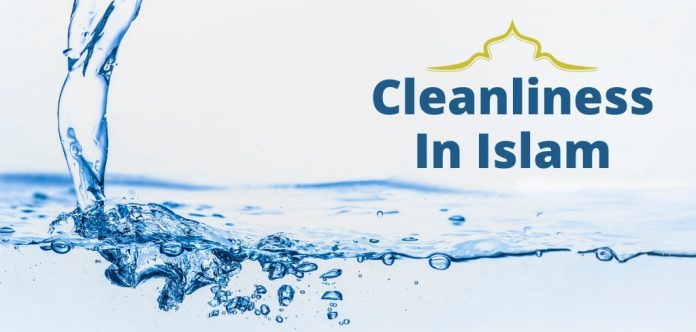The Prophet Muhammad ﷺ once said, “A believer is never impure.” (Hadith)
This statement reflects a fundamental truth: impurity and filth are incompatible with faith. A true believer does not remain in a state of impurity for long. If they do become unclean, they promptly purify themselves. Cleanliness and purity are essential components of a believer’s life. In another hadith, the Prophet ﷺ said, “Cleanliness is half of faith.” (Sahih Muslim, Mishkat)
According to Islamic teachings, faith is comprised of both internal and external purity. Internally, a believer must cleanse their soul of evil thoughts, immoral beliefs, and ungodly actions. They must avoid unethical and indecent behavior, holding on to righteous beliefs and pure intentions.
Externally, cleanliness involves maintaining personal hygiene—keeping one’s body, clothes, and surroundings clean. When both aspects are maintained, a person is considered complete in faith and beloved by Allah.
In another narration, when the angel Jibreel (A.S) asked the Prophet ﷺ about Islam, he replied:
“Islam is to testify that there is no god but Allah and that Muhammad ﷺ is His messenger; to establish prayer, give zakat, perform Hajj and Umrah, bathe when needed, perform proper wudu, and observe fasts during Ramadan.” (Hadith al-Munzhiri)
These teachings highlight that Islam emphasizes cleanliness from the very beginning of the day. One hadith commands:
“When one of you wakes up from sleep, do not dip your hands into a vessel until you wash them three times, for you do not know where your hands spent the night.” (Musnad Ahmad)
This advice reflects Islam’s attention to detail in maintaining hygiene. A man once asked why Islam emphasizes cleanliness so much. Upon hearing the teachings of the Prophet ﷺ, he acknowledged the unmatched depth and beauty in Islamic cleanliness.
Another hadith advises:
“When one of you wakes up, he should blow and clean his nose three times.” (Bukhari)
And before sleeping: “Perform wudu like you do for prayer.” (Bukhari, Muslim)
Modern doctors too recommend washing the face, hands, and feet before bed for better sleep and mental peace.
Islam also has specific etiquette for using restrooms. The Prophet ﷺ prohibited urinating in the place where one bathes (ghusl area), stating:
“None of you should urinate in the place where he takes a bath.” (Ahmad, Abu Dawood, Tirmidhi, Ibn Majah, Nasai)
Modern bathrooms with separate sections for bathing and toilet use do not fall under this prohibition, but the general rule remains that cleanliness must be maintained.
Furthermore, the Prophet ﷺ strictly forbade polluting public areas, riverbanks, shaded spots, and pathways, saying:
“Avoid the three cursed things: relieving oneself in water sources, pathways, and shaded places.” (Abu Dawood, Ibn Majah, Mishkat)
These are areas where people walk, rest, or bathe. Dirtying them causes inconvenience, spreads diseases, and harms the community.
(Adapted inputs and insights from the original article by Naseem Ghazi Falahi, published in Dainik Suffa on May 9, 2025)




